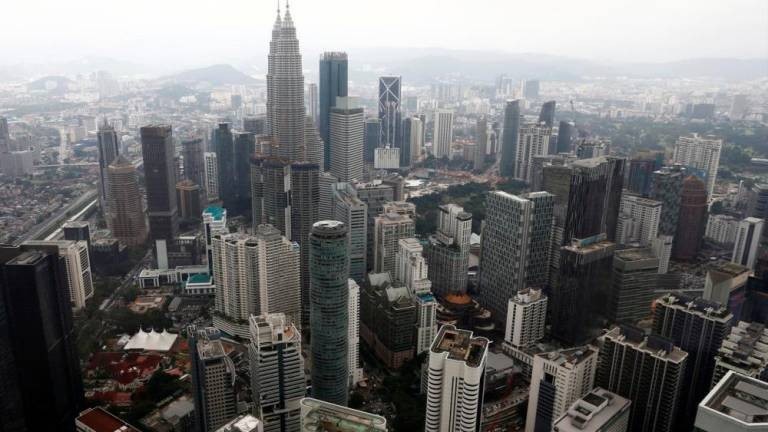
PETALING JAYA: The Covid-19 pandemic has taken a toll on our economy. Yet there is a silver lining - it has made businesses stronger and more resilient.
Businesses have had to restructure themselves as they face the truth of their vulnerabilities and inefficiencies. They have taken the first steps in investing in new technology and a better workforce.
The pandemic, according to Malaysian Aerospace Industry Association (MAIA) president Naguib Mohd Nor, has disrupted business models, forcing them to come up with more efficient and environmentally friendly solutions.
“Through that disruption, Covid-19 has brought forth the 4th Industrial Revolution (IR4.0). A good example is the disruption of the supply chain as ships and planes are grounded,” Naguib, who also runs Strand, a technology consulting company, said.
“Limitations to our ability to export and import will force global businesses to consider options that will allow them to simplify their logistics,” he told theSun yesterday.
“Instead of manufacturing products locally and exporting them, businesses can provide data to overseas manufacturers who could design and manufacture and assemble more complex components using existing technology or, in the near future, technology such as 3D-printing. This would require Malaysian manufacturers to develop such complex capabilities,” he said.
Naguib said if Malaysian companies took part in the development of such designs and data, the nation would transform into a “knowledge-based” economy.
“If you’re a knowledge-based economy, you are more agile and will be able to adjust as supply chains and markets adjust. You are also at the higher value spectrum of industry which in turn creates higher value jobs,” he added.
Naguib also said that business models are also becoming service centric rather than product-sales centric, allowing for access to premium goods at affordable prices, while increasing utilisation.
“Coway recently launched a service that enables customers to acquire a high-end orthopaedic mattress, which normally costs upwards of RM10,000, for only about RM140 a month with free servicing included.
“This type of business model also makes it easier for products to be recycled or reused as they are part of a service. This will optimise the utilisation of resources.
“The silver lining is that Malaysia has the opportunity to lead in such business opportunities locally and in the Southeast Asian region, instead of waiting for non-Malaysian-based corporations to eat up the market.”
Sunway University Business School professor of Economics, Dr Yeah Kim Leng, said businesses have been pushed to adopt newer technology.
“The pandemic has accelerated the shift towards digitalisation, particularly towards IoT (Internet of Things) and IR4.0, which has helped to manage the pandemic through applications such as MySejahtera,” he told theSun yesterday.
Meanwhile, Malaysian Employers Federation executive director Datuk Shamsuddin Bardan said new work arrangements have emerged alongside greater opportunities for the local workforce.
“As the pandemic begins to ease, many companies are planning a new combination of remote and on-site working, a hybrid virtual model in which some employees are on premises, while others work from home.
“The new model promises greater access to talent, increased productivity for individuals and small teams, lower costs, more individual flexibility, and improved work life balance.
“Also, to meet the new skill sets under the new normal, employers are encouraged to update their employees’ skills in areas such as digital literacy, collaboration, agility, creativity, problem solving and data analysis, through the PenjanaKerja programme,” he said.
Shamsuddin said the pandemic also shows locals can take up jobs previously regarded as unwanted.
“The KL and Selayang wholesale market is a good example. When the government banned foreign workers from the markets a good number of locals filled the vacancies.
“This is part of the new norm and locals can progressively fill up positions currently held by foreign workers,” he added.
Source: https://www.thesundaily.my/local/the-good-that-has-come-out-of-covid-19-XK3419725

